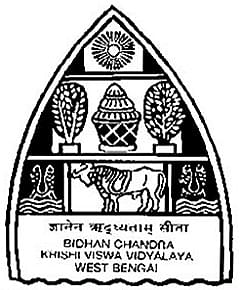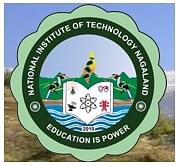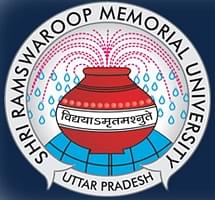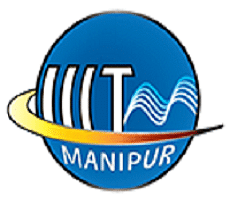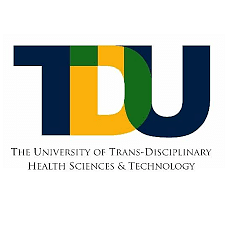Introduction about PHD
A Doctor of
Philosophy (PhD) is the highest academic degree one can earn in most fields. It
represents the culmination of years of study and research in a specific area of
interest. PhD courses are designed to equip students with the necessary skills,
knowledge, and methodologies to conduct original research and contribute new
insights to their chosen field.
Here's an
overview of what you can expect from PhD courses:
- Advanced Research Skills: PhD courses typically focus on developing advanced research
skills. This includes learning about research methodologies, data
collection techniques, statistical analysis, and critical thinking. These
skills are essential for conducting independent research at a high level.
- Specialization: PhD programs allow students to specialize in a particular area of
study. Whether it's in the sciences, social sciences, humanities, or
professional fields like engineering or business, students delve deeply
into their chosen subject matter.
- Coursework: Depending on the program and field of study, PhD students may be
required to complete coursework in addition to their research. These
courses often cover foundational knowledge in the field, as well as more
specialized topics relevant to the student's research interests.
- Seminar Discussions: Many PhD courses involve seminar-style discussions where students
and faculty engage in critical analysis of research papers, theories, and
methodologies. These discussions help students develop their analytical
and communication skills, as well as broaden their understanding of the
field.
- Independent Research: A significant portion of a PhD program is dedicated to conducting
independent research. Students work closely with a faculty advisor or
mentor to define a research question, design experiments or studies,
collect and analyze data, and draw conclusions. This research culminates
in a doctoral dissertation or thesis.
- Professional Development: PhD courses often include components aimed at professional
development. This may involve opportunities to present research at
conferences, publish papers in academic journals, participate in teaching
or mentoring activities, and develop other transferable skills needed for
a career in academia or industry.
- Collaboration and
Networking: PhD programs provide opportunities for
collaboration and networking with fellow students, faculty members, and
professionals in the field. Building relationships with peers and mentors
can be invaluable for future research collaborations and career opportunities.
- Time Commitment: PhD courses typically require a significant time commitment,
often spanning several years of full-time study. It's not uncommon for
students to spend 4-6 years or more completing their doctoral degree,
although the exact duration can vary depending on factors such as program
requirements and the nature of the research.
How can i apply for admission at PHD?
Applying for Avantika University admission process for PhD admission
program involves several steps. Here's a general guide on how to apply:
- Research Programs: Explore different PhD programs in your field of interest. Look
for universities or institutions that offer strong programs in your area
of study, have faculty members whose research aligns with your interests,
and offer the resources and facilities you'll need for your research.
- Review Admission
Requirements: Carefully review the admission
requirements for each program you're interested in. Common requirements
may include holding a relevant master's degree or equivalent, minimum GPA,
standardized test scores (if required), language proficiency tests (if applicable),
letters of recommendation, statement of purpose, CV or resume, and
transcripts.
- Prepare Application
Materials: Gather all required application
materials and start preparing them well in advance of the application
deadline. This may include obtaining official transcripts from your
previous institutions, contacting potential referees for letters of
recommendation, drafting your statement of purpose, updating your CV or
resume, and taking any required standardized tests.
- Complete Online Application: Most universities have an online application portal where you can
submit your application materials. Create an account on the university's
website and complete the online application form. Make sure to fill out
all sections accurately and thoroughly, and double-check for any errors
before submitting.
- Submit Application Fee: Some universities require applicants to pay an application fee
when submitting their application. Be sure to pay the fee online through
the university's payment portal if it's required.
- Arrange for Transcripts to
be Sent: Request official transcripts from all
previous academic institutions you have attended to be sent directly to
the university's admissions office. Some institutions may allow electronic
submission of transcripts, while others may require paper copies sent via
mail.
- Request Letters of
Recommendation: Contact your referees well in advance
and request letters of recommendation. Provide them with all necessary
information, such as deadlines, instructions for submission, and any
specific requirements or forms they need to complete. Ensure that your referees
are familiar with your academic or professional work and can provide
strong, supportive recommendations.
- Write Statement of Purpose: Write a compelling statement of purpose that outlines your
academic background, research interests, career goals, and reasons for
applying to the specific PhD program. Tailor your statement to each
program you're applying to and make sure it demonstrates your passion for
the field and your suitability for doctoral study.
- Prepare CV or Resume: Update your CV or resume to include your academic achievements,
research experience, publications, presentations, awards, relevant work
experience, and any other qualifications or accomplishments that are
relevant to your PhD application.
- Submit Additional Materials: If required, submit any additional materials such as standardized
test scores (e.g., GRE), writing samples, or portfolios.
- Check Application Status: After submitting your application, regularly check the
application status through the university's online portal. This will allow
you to track the progress of your application and ensure that all required
materials have been received.
- Prepare for Interviews (if
required): Some PhD programs may require
applicants to participate in interviews as part of the admissions process.
If you're invited for an interview, prepare by reviewing your application
materials, researching the program and faculty, and practicing your responses
to potential interview questions.
- Wait for Admission Decision: After the application deadline has passed, wait for the
university to notify you of their admission decision. This may take
several weeks or months, depending on the program's timeline.
- Acceptance and Enrollment: If you receive an offer of admission, carefully review the terms
of the offer and any deadlines for accepting or declining. Follow the
instructions provided by the university for accepting the offer and
completing the enrollment process.
- Prepare for PhD Studies: Once you've accepted an offer of admission, start preparing for
your PhD studies. This may involve arranging housing, applying for
scholarships or funding, familiarizing yourself with the program
requirements, and getting to know your faculty advisor and fellow
students.
Remember to
carefully review the application deadlines for each program you're applying to
and give yourself plenty of time to prepare and submit your materials. Good
luck with your PhD applications!
What is Eligibility for PHD at Avantika University ?
Eligibility criteria for a PhD program can vary depending on the
university, country, and field of study. However, there are some common
eligibility requirements that many programs share:
- Educational Background: Typically, applicants must hold a relevant master's degree or
equivalent qualification from an accredited institution. In some cases,
exceptional students may be admitted directly from a bachelor's degree
program into a combined master's and PhD program, bypassing the master's
degree requirement.
- Academic Performance: Applicants are usually expected to have a strong academic record,
demonstrated by a high GPA (Grade Point Average) or equivalent academic
achievements. Many programs have minimum GPA requirements for admission.
- Research Experience: While not always mandatory, having prior research experience,
either through independent research projects, thesis work, or professional
experience, can strengthen an application for a PhD program. Admissions
committees often look for evidence of the applicant's ability to engage in
independent research.
- Language Proficiency: For international applicants whose native language is not the
language of instruction at the university, proof of language proficiency
may be required. This is typically demonstrated through standardized tests
such as the TOEFL (Test of English as a Foreign Language) or IELTS
(International English Language Testing System).
- Standardized Test Scores: Some PhD programs may require applicants to submit scores from
standardized tests such as the GRE (Graduate Record Examination) or
subject-specific GRE tests. However, this requirement is becoming less
common in many fields, and some programs may waive the GRE requirement or
make it optional.
- Letters of Recommendation: Most PhD programs require applicants to submit letters of
recommendation from academic or professional references who can attest to
the applicant's qualifications, academic abilities, and potential for
doctoral study. The number of required letters may vary but is typically
2-3.
- Statement of Purpose: Applicants are usually required to submit a statement of purpose
or personal statement outlining their research interests, academic
background, career goals, and reasons for pursuing a PhD at the specific
institution. This is an opportunity for applicants to demonstrate their
passion for the field and their fit for the program.
- CV or Resume: Applicants are often required to submit a CV (Curriculum Vitae)
or resume detailing their academic achievements, research experience,
publications, presentations, awards, relevant work experience, and any
other qualifications or accomplishments that are relevant to their PhD
application.
It's
important to note that eligibility criteria can vary significantly between
different programs and fields of study, so it's essential to carefully review
the specific requirements of each program you're interested in before applying.
Additionally, meeting the minimum eligibility criteria does not guarantee
admission, as PhD programs are often highly competitive, and admissions
decisions are based on a holistic review of the applicant's qualifications and
potential for success in the program.
What are Carrier opportunities after PHD ?
After completing a PhD from the best Ph.D. university in India,
individuals have a wide range of career opportunities available to them, both
within and outside of academia. Here are some common career paths for PhD
graduates:
- Academic Researcher: Many PhD graduates pursue careers as academic researchers,
working as faculty members at universities and research institutions. They
conduct original research, publish scholarly articles, secure research
funding, and mentor students.
- University Professor: PhD holders often become university professors, teaching
undergraduate and graduate-level courses in their field of expertise.
Professors also conduct research and publish scholarly work, contributing
to the advancement of knowledge in their discipline.
- Industry Research Scientist: PhD graduates are highly sought after by industries such as
pharmaceuticals, biotechnology, engineering, computer science, and many
others. They may work in research and development (R&D) roles,
designing experiments, developing new products or technologies, and
solving complex problems.
- Government Researcher: Government agencies at the local, national, and international
levels employ PhD holders in research positions. They may work on public
policy issues, scientific research projects, or regulatory compliance.
- Non-Profit Organizations: Non-profit organizations, think tanks, and research institutes
hire PhD graduates to conduct research on various social, economic, and
environmental issues. They may work on policy analysis, program
evaluation, and advocacy efforts.
- Consulting: Consulting firms often hire PhD graduates to provide expertise in
specialized areas such as data analysis, market research, strategic
planning, and technology development. They may work with clients from
diverse industries on projects requiring advanced research and analytical
skills.
- Entrepreneurship: Some PhD graduates choose to start their own businesses or work
in start-up companies. They may commercialize their research findings,
develop innovative products or services, or provide consulting services in
their area of expertise.
- Science Communication and
Journalism: PhD holders with strong communication
skills may pursue careers in science communication, journalism, or
publishing. They may work as science writers, editors, or communicators,
translating complex scientific concepts for a general audience through articles,
books, or multimedia content.
- Policy Analysis and
Advocacy: PhD graduates can work in government
agencies, non-profit organizations, or private sector firms involved in
policy analysis, advocacy, and public affairs. They may research and
analyze policy issues, develop recommendations, and communicate findings to
policymakers and the public.
- Education Administration: Some PhD graduates choose careers in education administration,
working as department chairs, academic deans, or administrators in
colleges, universities, or educational organizations. They may oversee
academic programs, manage faculty and staff, and contribute to
institutional governance.
These are
just a few examples of the diverse career paths available to PhD graduates. The
specific opportunities will depend on factors such as the individual's field of
study, research interests, skills, and career goals. Networking, gaining
relevant experience, and staying informed about job market trends can also help
PhD graduates identify and pursue rewarding career opportunities.
What is the Syllabus of PHD?
The syllabus for affordable Ph.D. universities in India program
varies significantly depending on the specific field of study, the university,
and the research interests of the student. However, I can provide a general
overview of the components that may be included in a typical PhD syllabus:
- Research Methodology: PhD students typically take courses in research methodology to
develop advanced skills in designing research studies, collecting and
analyzing data, and interpreting results. Topics may include qualitative
and quantitative research methods, experimental design, survey research,
case studies, and data analysis techniques.
- Core Courses: Depending on the field of study, PhD students may be required to
take core courses that provide foundational knowledge in their discipline.
These courses may cover theoretical frameworks, key concepts, historical
developments, and current debates in the field.
- Specialization Courses: PhD students often take courses that are specific to their area
of specialization or research interests. These courses delve deeper into
specialized topics within the discipline and may be taught by faculty
members who are experts in those areas.
- Seminar Series: Many PhD programs include seminar series where students and
faculty members present and discuss their research findings, literature
reviews, and works-in-progress. These seminars provide opportunities for
students to engage with current research in the field, receive feedback on
their own work, and develop presentation skills.
- Independent Study: PhD students typically engage in independent study under the
supervision of a faculty advisor or mentor. This may involve reading and
synthesizing relevant literature, conducting pilot studies or experiments,
writing research proposals, and developing research projects.
- Teaching Experience: Some PhD programs require students to gain teaching experience by
serving as teaching assistants or instructors for undergraduate courses.
This provides valuable experience in course planning, curriculum
development, classroom management, and student assessment.
- Comprehensive Examinations: Many PhD programs require students to pass comprehensive
examinations, also known as qualifying exams or prelims, to demonstrate
mastery of the core concepts and theories in their field of study. These
exams may be written and/or oral and are typically taken after completing
coursework.
- Dissertation Research: The centerpiece of a PhD program is the dissertation or doctoral
thesis, which involves conducting original research under the guidance of
a faculty advisor. PhD students devote a significant portion of their time
and effort to designing and conducting research, analyzing data, and
writing up their findings in a dissertation document.
- Dissertation Defense: After completing their dissertation, PhD students typically
defend their research findings in a public oral defense before a committee
of faculty members. During the defense, students present their research
methodology, results, and conclusions, and respond to questions and
critiques from the committee members.
- Professional Development: Some PhD programs include components aimed at professional
development, such as workshops on academic writing, grant writing,
presentation skills, career planning, and job market preparation. These
activities help students develop the skills and competencies needed for
successful careers in academia, industry, government, or other sectors.
Top of Form







